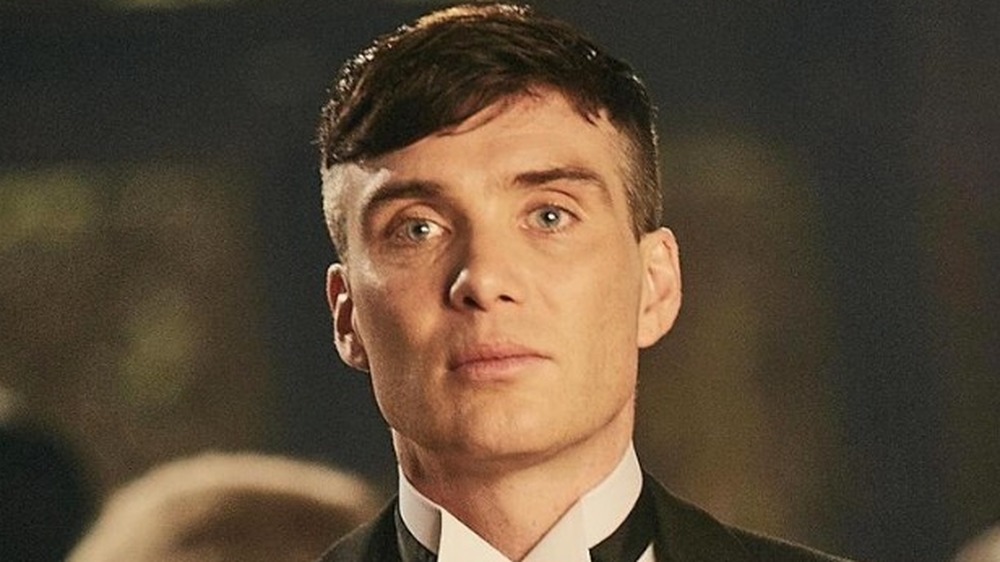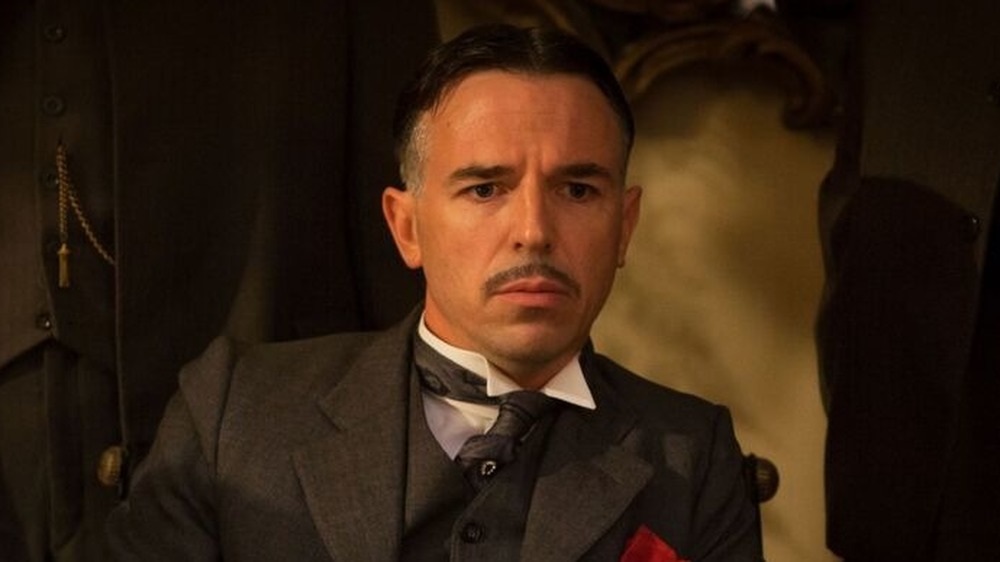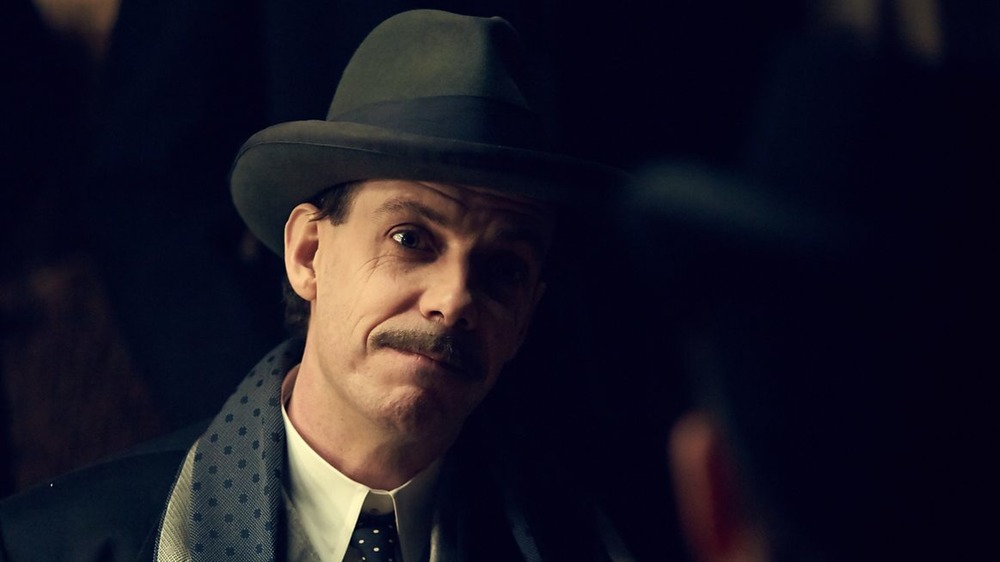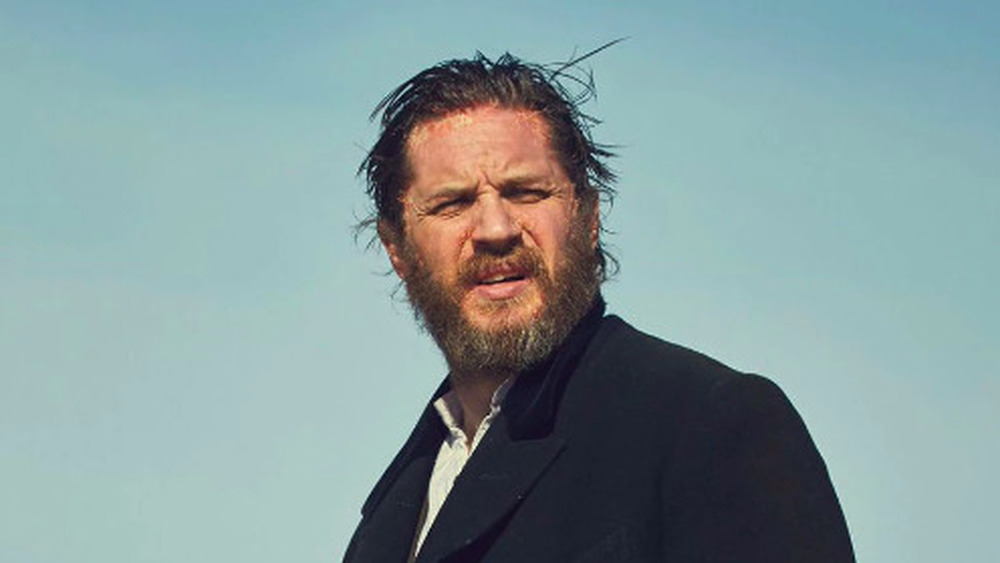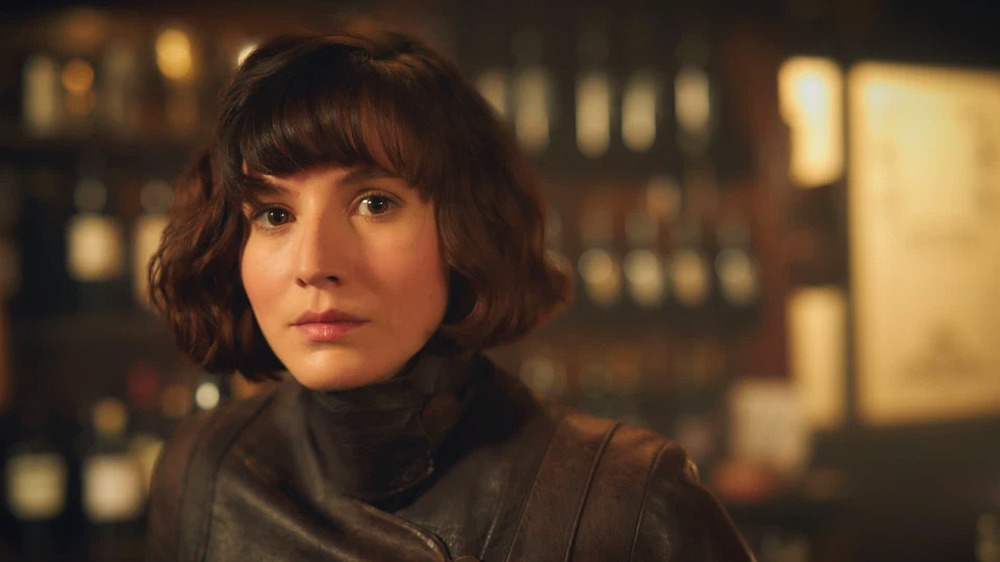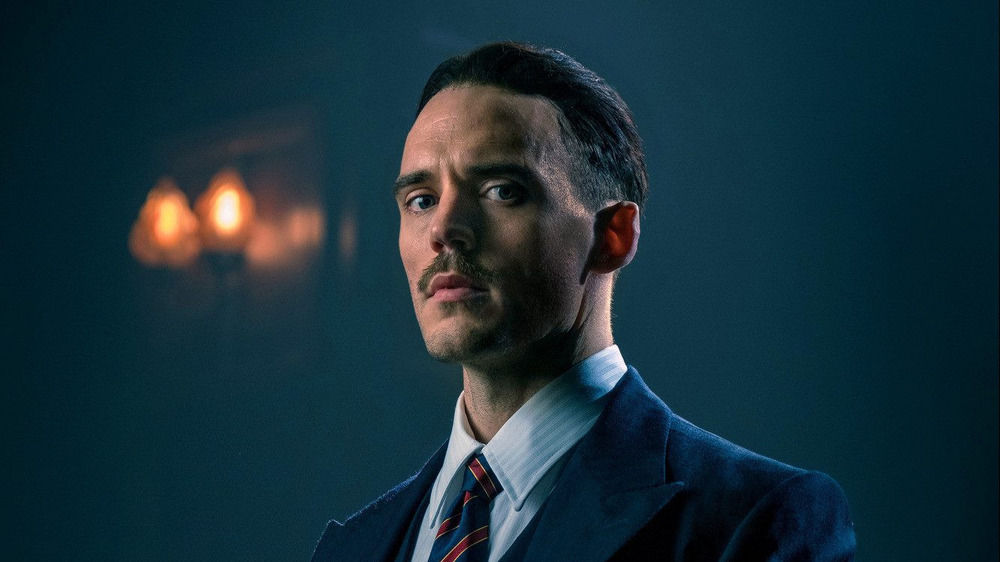Characters In Peaky Blinders That Existed In Real Life
As any good Peaky Blinders fan can tell you, the popular British period drama created by Steven Knight and starring Cillian Murphy as crime boss Thomas Shelby has featured a handful of powerful characters based on real people over the years.
Now, there's a really good chance you already know that the show is based on a real gang and that Winston Churchill, who has been portrayed by a few actors throughout the show's run, is based on the man who famously led Great Britain as prime minister during World War II. But there are many other characters appearing throughout the show's first five seasons who were either inspired by or based on lesser known people alive at the time.
So, while we wait for the debut of the sixth and final season of the show, which airs on Netflix in the United States, these are the Peaky Blinders characters based on people who existed in real life.
Billy Kimber, played by Charlie Creed-Miles
Charlie Creed-Miles portrayed Billy Kimber, the leader of the Birmingham Boys, in the first season of Peaky Blinders. He was a racecourse kingpin, controlling both the legal and illegal betting that went on at several racetracks across England, making him both extremely rich and extremely powerful. Tommy and the Peaky Blinders initially provided protection for Kimber. Yet, after he learned that Tommy had planned to betray him, there was a confrontation at the end of the season and Tommy ended up killing Kimber in the process.
In real life William "Billy" Kimber wasn't much different from the man who was portrayed on screen. He was the leader of the real Birmingham Boys, a violent gang that controlled multiple racetracks in England, where the only legal gambling in the country was allowed at the time. He eventually lost control of several racetracks to the Sabini gang and died at age 63 in a nursing home after apparently becoming a legitimate businessman.
Darby Sabini, played by Noah Taylor
Darby Sabini, portrayed by Noah Taylor, was an antagonist in Peaky Blinders' second season, which found Tommy and the Shelby family looking to expand their business endeavors outside of Birmingham by taking over horse racing in England and also smuggling liquor into Prohibition Era America. To accomplish his goals, Tommy formed a working relationship with a gangster known as Alfie Solomons (Tom Hardy), who worked out of Camden Town. He asked Solomons to work with him against Sabini, who then controlled the racetracks. Naturally, Sabini didn't take too well to this, and Tommy was nearly killed during Derby Day.
Charles "Darby" Sabini, who went by a number of aliases during his lifetime, was a real bookmaker and the leader of the Sabini gang in the early 1900s. Much like in the show, the gang was involved in controlling betting at the racetracks and earned income from protection rackets operated against bookies. He was eventually interned during the war, which caused his empire to crumble.
Alfie Solomons, played by Tom Hardy
Tom Hardy's mumbling, bearded Alfie Solomons was introduced in the second season of Peaky Blinders as a Jewish gang leader and slippery business partner of Tommy Shelby who worked out of Camden Town in London. The man could never really be trusted because of his affinity for switching allegiances whenever it suited his interests, but he managed to become a fan favorite anyway. Solomons has recurred throughout the series; after appearing to die from being shot by Tommy on a beach at the end of season 4, he made a shocking return the following season with much fanfare.
Unlike the rest of the characters mentioned above, the man who was the inspiration for Alfie Solomons remains a bit of a mystery, so the character seems to be more fictionalized than the others. First of all, his surname was Solomon, not Solomons. He was reportedly a Jewish bookie who even got tangled up with Billy Kimber at one point during the racecourse wars, but it seems that he appears to have disappeared from history by the 1930s.
Jessie Eden, played by Charlie Murphy
Jessie Eden was a recurring character played by Charlie Murphy in Peaky Blinders' fourth and fifth seasons. A communist and union convenor who supported equal pay for women, she popped up on Tommy's radar after she threatened to start a strike at one of his factories. He eventually found a use for her and pumped her for information after successfully convincing her that her cause was his cause, which she took to mean he was a fellow communist.
The character of Jessie Eden was based on the real life British activist and trade union leader of the same name who became famous for leading the Rent Strike in 1939 Birmingham, among a number of other strikes over the years. She was a champion of women and social justice, and at least one person who knew Eden has taken issue with the way the show has portrayed her, citing historical inaccuracies and condemning the aspects of her storyline that portray her as having feelings for or being a love interest of Tommy Shelby.
Sir Oswald Mosley, played by Sam Claflin
In season 5, Peaky Blinders introduced Sam Claflin's Sir Oswald Mosley. A fellow member of Parliament, he wanted Tommy's help to launch a new party in Britain, even rousing support at a party after the stock market crash. His message was "Britain first," and he derided the press while citing "fake news" in a storyline that was meant to pointedly reflect recent political events.
In real life, Mosley was a similarly controversial British politician who first rose to fame as a member of Parliament in the 1920s. Having become disillusioned with traditional party politics, he put his oratory skills to good use in the early 1930s and became the leader of a far-right party known as the British Union of Fascists. However, after the outbreak of World War II in 1939, the British government, worrying its supporters might be pro-Nazi, condemned the party as a whole, and it was disbanded the following year. Mosley was eventually interned and later put under house arrest. After the war, he attempted to make a political comeback, but received little support and eventually moved to France where he lived out the rest of his life.
